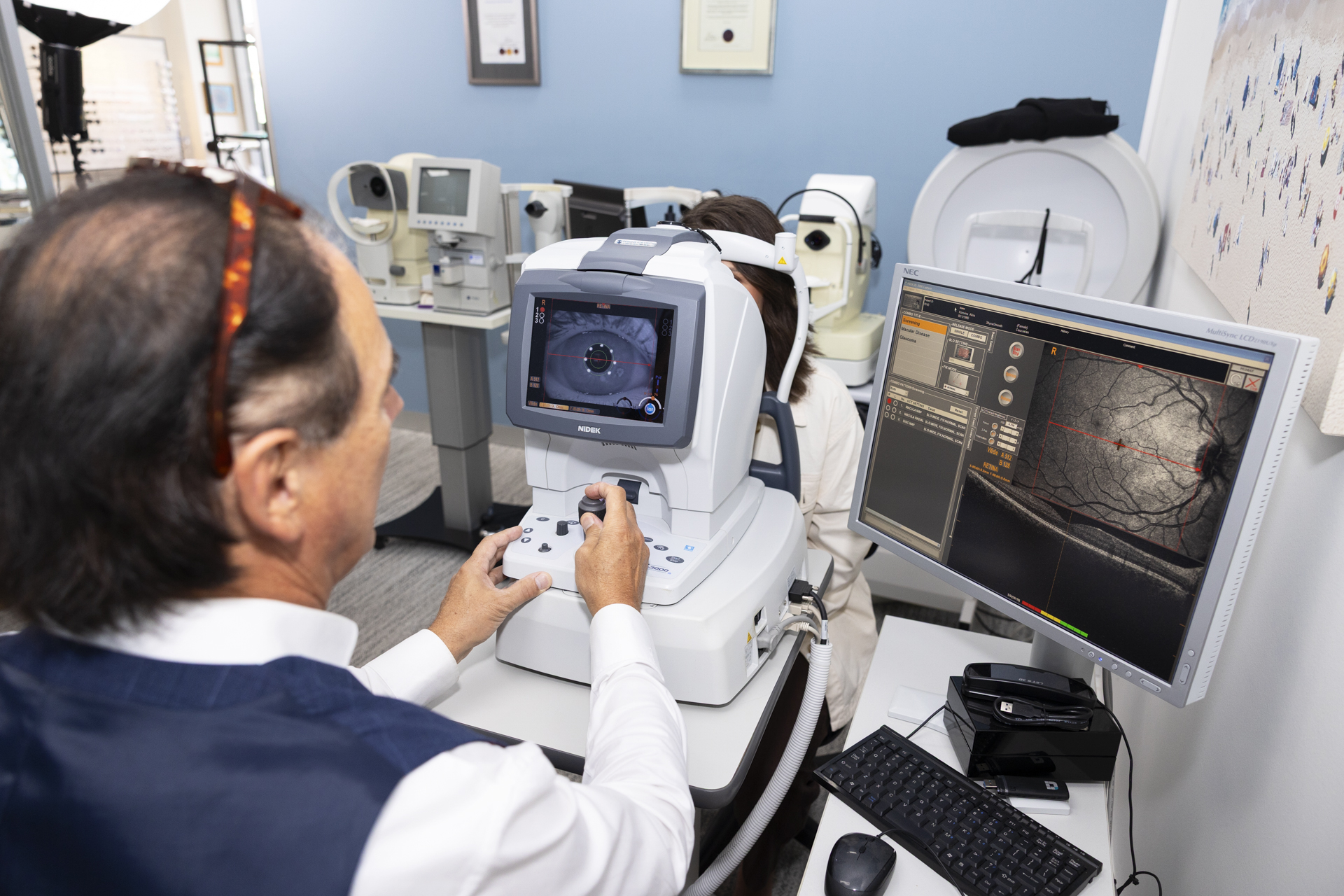When it comes to eye health, most people assume that having 20/20 vision means your eyes are perfectly fine. But what if we told you that clear eyesight is just one part of healthy vision?
That’s the core idea behind Behavioural Optometry, a more comprehensive, people-first approach to vision care that looks beyond how well you see letters on a chart. At Microprism Vision in Melbourne, we use behavioural optometry to help patients of all ages improve the way their eyes, brain, and body work together.
Let’s explore what behavioural optometry is, why it matters, and how it can help you or your child experience more comfortable, functional, and natural vision every day.

What Is Behavioural Optometry?
Behavioural optometry is a specialised field of optometry that recognises vision as a dynamic process involving the brain, the eyes, the body, and the environment. Rather than focusing solely on clarity, it explores how well your visual system supports real-life tasks such as reading, learning, focusing, driving, and spatial awareness.
This approach asks questions like:
- How well do your eyes move and track together?
- Are your eyes and brain communicating effectively?
- Is your vision helping, or hindering, your performance at school or work?
- Do you experience fatigue, headaches, or discomfort from visual tasks?
Where traditional optometry ends, behavioural optometry begins, with the aim of optimising visual function, not just correcting blurry vision.
How Is It Different from a Standard Eye Test?
A routine eye test may measure your ability to read letters from a distance. Behavioural optometry, on the other hand, looks at a broader set of visual skills, including:
- Eye teaming and coordination
- Focusing flexibility (near to far)
- Depth perception
- Visual memory and processing
- Eye movement control
- Visual attention and integration with posture and balance
This deeper level of testing allows us to identify underlying visual inefficiencies that often go unnoticed, especially in children or adults who are told they have “perfect vision” but still struggle with tasks requiring sustained visual focus.
Who Can Benefit from Behavioural Optometry?
Behavioural optometry is suitable for people of all ages and life stages. You may benefit from this approach if you:
- Have difficulty reading or concentrating for long periods
- Experience headaches or eye strain after screen time
- Struggle with depth perception or clumsiness
- Are recovering from a concussion or head trauma
- Have a child with learning difficulties, dyslexia, or ADHD
- Feel that glasses help, but not completely
At Microprism Vision, many of our patients come to us after years of frustration, only to find that a holistic approach finally unlocks the missing link in their vision.
Our Holistic Vision Assessment Process
When you visit Microprism Vision for a behavioural optometry consultation, we take the time to explore your full visual picture, going well beyond the standard 15-minute eye test.
Your personalised assessment may include:
- Functional vision tests
- Neurological and postural evaluations
- Eye-tracking and teaming exercises
- Lifestyle and environmental review
- Discussion of symptoms and visual history
From there, we develop a tailored treatment plan, which may include:
- Microprism™ Lenses – to rebalance how your eyes and brain align and function together
- Vision Therapy – customised exercises to retrain the brain and improve visual efficiency
- Quantum Photo Somatics Therapy – light-based therapy to support visual processing and neural integration
Real Outcomes: More Than Just Clarity
At Microprism Vision, we’ve helped hundreds of patients across Melbourne experience life-changing results through behavioural optometry. These include:
- Children who go from struggling in school to reading confidently
- Adults who experience relief from chronic visual fatigue and brain fog
- Seniors who regain coordination and independence
- Professionals who perform better with fewer symptoms during screen-heavy workdays
The common thread? Their visual systems were treated as part of the whole person, not just as a pair of eyes.
Meet Your Expert: Dr Michael Christian
Dr Michael Christian is a leader in holistic and behavioural optometry in Australia. With over 20 years of clinical experience, he has developed innovative therapies such as Microprism™ lenses and Quantum Photo Somatics to support patients beyond the conventional model of care.
His approach combines science, compassion, and personalisation, making Microprism Vision one of Melbourne’s leading centres for behavioural optometry.
See Better, Live Better
Good vision is about more than just seeing clearly, it’s about how effectively your eyes and brain work together to support your life. Whether you’re reading, driving, learning, or simply moving through your day, behavioural optometry can help ensure that your vision is truly working for you.
Ready to experience the difference?
Book a comprehensive behavioural vision assessment at Microprism Vision and start your journey toward more comfortable, natural, and empowered vision.
Schedule your appointment or learn more about our holistic approach.
